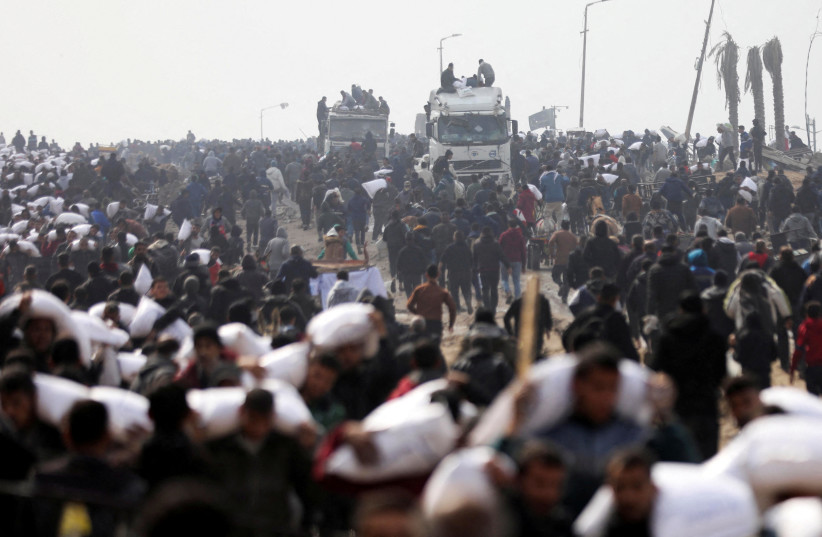An emergency plan for humanitarian aid prepared months ago could have prevented the strike in which seven aid workers were killed if it had been implemented, Jewish News reported on Thursday.
According to the report, the humanitarian aid agency Global Delivery Company (GDC) presented a detailed plan to better organize aid distribution to the Israeli government back in February and the plan was supported by the IDF.
But when Moti Kahana, the head of GDC, tried to present the plan to the Prime Minister's Office, the office responded, "What's the rush?"
The plan would have created gated communities described as a "Secure Humanitarian Logistics Corridor" and used biometric recognition to regulate the distribution of aid.
The project would be implemented in several phases, with the first phase bringing mass food and water deliveries and working to restore civil order.

The project would have cost about NIS 761 million over six months, according to the report.
Plan was pushed off by government
“Israel has had this plan on the table for more than two months. We have had several meetings at the highest level to present the plan and go over the ideas. The army was in favor, and we have been waiting for the green light, but when we asked if we could go ahead, the Prime Minister’s Office asked, ‘What’s the rush?’” said Kahana to Jewish News.
Kahana argued that the plan would have prevented Hamas or other criminals from stealing the aid.
“A detailed paper explaining our proposal was presented to the US and Israeli governments at very high levels. On the Israeli side the plan was discussed with the PM and his top aides. They were positive about it but delayed giving us final approval, or scheduling a meeting to discuss details," said Kahana.
The plan was also presented to the US government, but no response was received from American officials.
“Our experience calls into question the seriousness of both the Netanyahu and Biden governments to find a solution to the humanitarian tragedy in Gaza. Talk is cheap, but the people of Gaza need action," said the GDC head.
Seven aid workers from the World Central Kitchen organization were killed in an IDF strike that hit their three vehicles in the central Gaza Strip on Monday.
The incident sparked international outrage, with the US and other allies of Israel demanding immediate changes to how humanitarian aid to Gaza is handled.
An investigation by the IDF found that soldiers on the ground thought they saw Hamas terrorists on the targeted vehicles and misidentified the vehicles, leading to the decision to launch the strike. The IDF said that the strikes were carried out in "serious violation of the commands and IDF Standard Operating Procedures."
